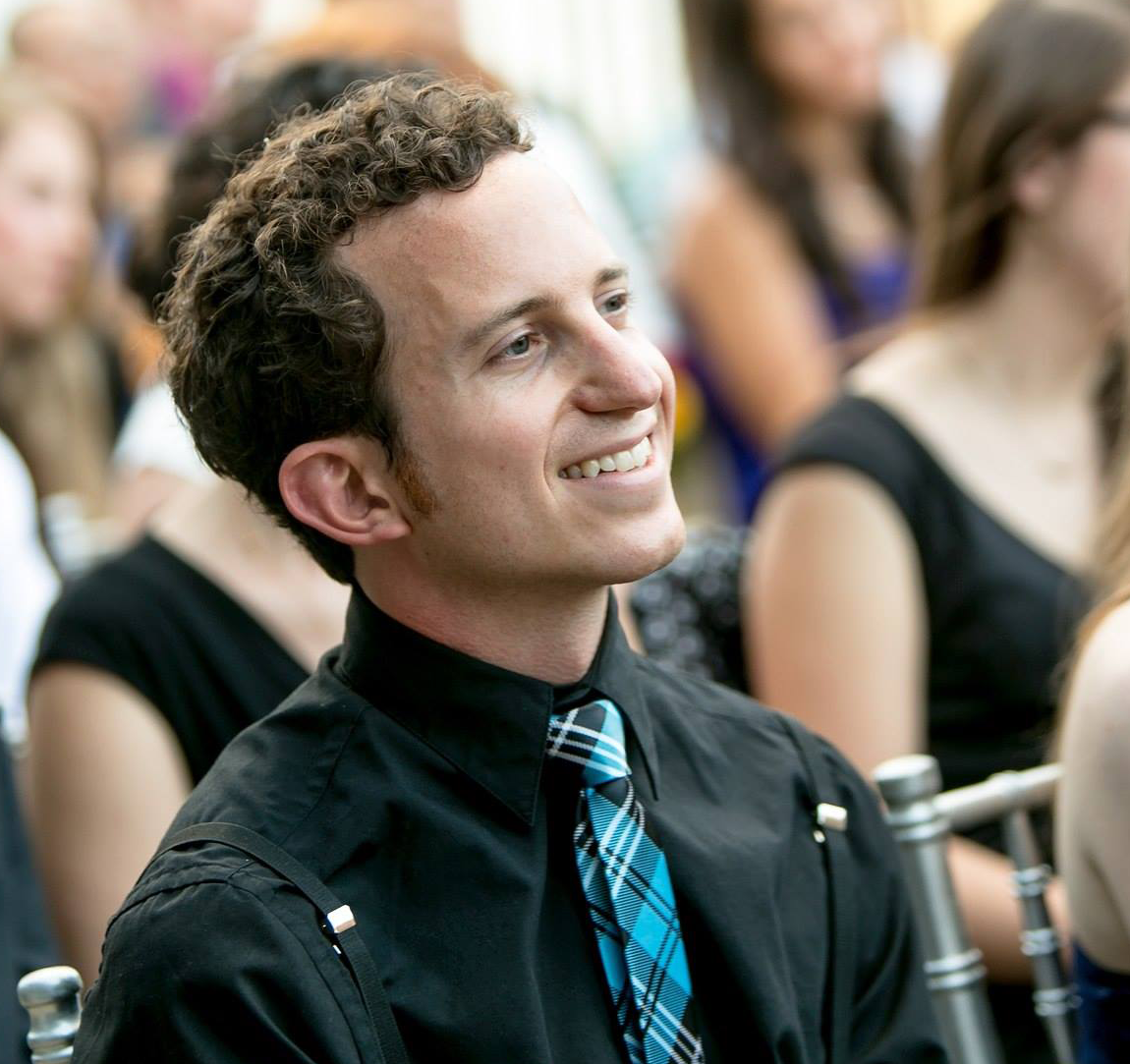Denney could also be found tinkering at the Baltimore Node, helping to run a game of four square in the street, or meeting on a Sunday afternoon to dole out microgrants to community nonprofits.
But now, he’s on to a new adventure.
Denney moved to Chicago at the end of May. Since he’s been involved in a lot of activity in Baltimore’s tech and creative communities, we caught up with him to get his parting thoughts on paper.
In this interview, conducted one email at a time, Denney reflects on how the tech community has grown, and how Baltimore’s female leaders could be an example.
###
Why are you leaving Baltimore?
I’ve been here for about six years and I feel like it’s time to try someplace new. It’s in my nature to travel and start afresh. I enjoy meeting new people, getting lost, and feeling like I don’t belong.
For example, it wasn’t an issue to me that I didn’t have any knowledge about Baltimore before I moved here, I simply moved for a job. Embarrassingly, I couldn’t even place it on a map before then. Obviously, the charm got to me and I don’t think any other city could have kept me around as long. I’ll definitely miss it!
You were heavily involved in the tech and creative communities here. How do you view those communities now compared to the way you found them?
Change being the only constant, I’d have to say yea, things have definitely changed. When I first moved to Baltimore, the Baltimore Node Hackerspace was just opening. Since then, other similar community workspaces and makerspaces have popped up, not to mention the recent Open Works announcement. So it’s easy to say that the community is growing or at least becoming more social and organized.
In 2010, I was lucky enough to attend the first Baltimore Hackathon which landed me a new job at a small startup-minded company called Lookingglass, a welcome change from my previous corporate job. Seeing and experiencing the value of the hackathon and having support from Lookingglass encouraged me to help organize the event in later years.
In terms of the creative community, I got to be one of the first trustees of the Baltimore chapter of the Awesome Foundation, at the time spearheaded by Deana Haggag. I also got to join one of the house troupes of the newly formed Charm City Comedy Project.
So again, with all these new groups forming, both communities are clearly growing.
These groups have changed me by providing really great leadership opportunities and experiences. I think folks take for granted how easy it is to play a significant role in the community compared to other cities. Baltimore is a very inclusive and supportive city.
You mentioned the growth of new organizations and plans for new makerspaces. Given your experience, what do you think these spaces need to become sustainable?
These spaces need buy-in from the community they serve. They should be run and organized by the people that benefit from them.
It’s not enough to simply have resources available, you need to draw the community in by having them vested in those resources. I would love to see artists of Baltimore making a living by using and also running these types of spaces.
Do you have a favorite tech memory from your time here?
It would have to be the first Baltimore Hackathon as it was a crucial turning point in my involvement with the tech community. I met many of the tech event organizers and leaders, not to mention my future coworkers at Lookingglass (from landing an interview after getting to know them at the event). I met a lot of “my kind of people” there, folks who live to tinker and make things for the sake of making them.
Any first thoughts on Chicago? How does it compare to Baltimore?
I think it’s too soon for me to really know the cultural differences, but the obvious difference is the comparison in size. Not owning a car, I’ve really enjoyed the convenience of reliable public transit that comes with living in a big city. Biking was the only reliable method to get around Baltimore since I didn’t work near the light rail.
In regards to tech, a bigger city means more tech businesses, more tech events, and more specific and niche kinds of meetups. I’ve been enjoying sampling the abundance of coworking spaces, hack nights, and tech talks that are available.
However, bigger is not always better. In terms of percentages, it’s easier to have a diverse community when your community is small.
An example of an area where Baltimore shines in comparison is its high percentage of women in leadership positions (better explained by this article). Coincidentally, all of the community groups I once organized or led (Baltimore’s Playground, Awesome Foundation, Baltimore Hackathon) are now all led by women.
Given all of the talented female leaders around, Baltimore could become the paragon of changing the underrepresentation of women in many industries, most notably the tech industry. Obviously, the next logical step will be to set the stage for other minorities as well.
I’ll definitely miss being part of such a progressive and game-changing community.
Before you go...
Please consider supporting Technical.ly to keep our independent journalism strong. Unlike most business-focused media outlets, we don’t have a paywall. Instead, we count on your personal and organizational support.
Join our growing Slack community
Join 5,000 tech professionals and entrepreneurs in our community Slack today!

The person charged in the UnitedHealthcare CEO shooting had a ton of tech connections

From rejection to innovation: How I built a tool to beat AI hiring algorithms at their own game

Where are the country’s most vibrant tech and startup communities?


